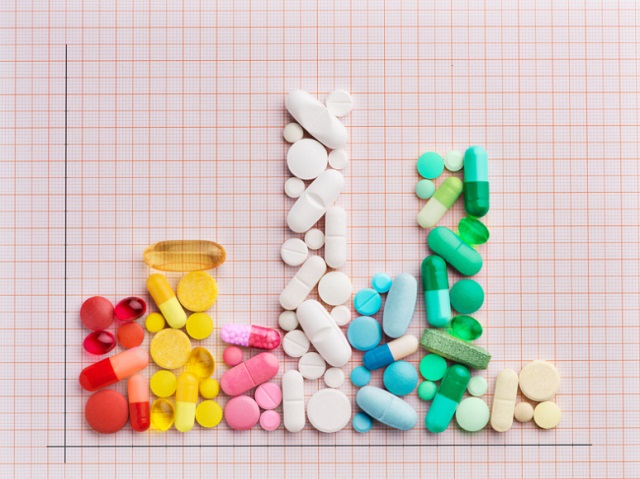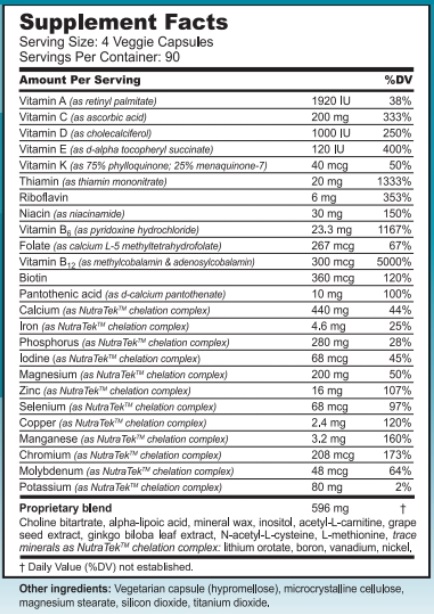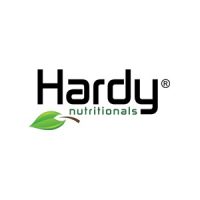This is a post written by Hardy Nutritionals®—an Elephant partner. We’re honored to work with anyone who is this dedicated to improving our nutritional well-being and offering another option to help those living with mental health issues. ~ Ed.
~
Psychiatric medications have been the mainstream, default course of treatment for mood and mental health disorders throughout the Western world for decades—and, in many cases, are widely considered the only viable option.
However, while anti-depressants, anti-anxiety, and anti-psychotic medications may provide short-term relief of symptoms, a growing body of evidence shows that they can have negative side-effects and may not provide long-term relief.
Dr. Julia Rucklidge, University of Canterbury researcher explains the correlation between prescription medication and increased rates of mental illness:
An Alternative Option to Psychiatric Drugs
Currently, over 30 independent research studies conducted at 19 universities worldwide have demonstrated that clinical micronutrients are a safe and effective alternative to psychiatric medications for the treatment of a wide range of mood and mental health disorders in adults and children.
In 2017, the Hardy Nutritionals® Daily Essential Nutrients clinical micronutrient blend was studied in the first ever fully-blind placebo controlled university trial for pediatric ADHD. The independently funded study yielded significant results wherein researchers reported that Daily Essential Nutrients dramatically improved emotional regulation and aggression in children with ADHD.
Over 30 other independent university studies have shown that clinical broad-spectrum micronutrients can be effectively used to treat ADHD, as well as other mental health and mood disorders such as depression, anxiety, bipolar disorder, schizophrenia, and PTSD.
In contrast to chemical symptom management, clinical micronutrients aim to treat core underlying deficiencies, providing the body with carefully balanced essential elements in a highly bioavailable format which are central to every metabolic process.
Dr. Scott Shannon, Integrative Psychiatrist shares his experience using micronutrients with patients for mood and mental health:
Simply put, clinical micronutrients provide the essential nutrients the brain and body need to function optimally, in a highly absorbable and balanced format.
Psychiatry and Micronutrients
A textbook recently published by the American Psychiatric Association, “Complementary and Integrative Treatments in Psychiatric Practice,” examines the research behind micronutrients, and concludes that micronutrients provide a “physiologically sensible approach” to treating mood and mental health disorders.
Citing multiple third-party funded university studies, the authors wrote, “…broad-spectrum micronutrients and psychiatric medications appear comparable in both antidepressant and anti-manic effects, but the micronutrients had far fewer and less severe side effects and much lower relapse rates. Compared with conventional psychotropics, patients stabilized on broad-spectrum micronutrients have fewer residual symptoms and mood fluctuations, fewer necessary dose changes, less need for monthly medication checks, rare hospitalizations, and lower treatment costs.” (Kaplan et al. 2017; Rodway et al. 2012)
Not All Supplements are Created Equal
The levels of vitamins and minerals found in Daily Essential Nutrients are not easily replicated. In fact, the specific ingredients at the levels supported by the published research would cost over $400 to DIY at the supplement store.
At a TEDx event focusing on nutrition and mental health, clinical psychologist Dr. Julia Rucklidge, who has spent the past decade researching micronutrients and their effects on mental health, explained the difference between clinical micronutrients and typical vitamin supplements:
“When I say micronutrients, I am actually referring to a dose higher than what you’d get out of a vitamin pill purchased at the supermarket…it would be unlikely that if you went and got an over the counter supplement, [that] you would see these positive benefits, both because the dose is lower and the breadth of nutrients is lower.”
So, Why Not just Eat Better?
While a healthy diet is an important part of living well, even the best diets have been shown to lack essential nutrients. Further, science has shown that individuals at risk for mental health disorders have higher nutrient needs than those not at risk. This creates a need for supplementation. (Ames, 2000).
At the very least, a person would have to consume many pounds of raw vegetables and fruits per day in order to achieve the clinical levels of vitamins and minerals found in Daily Essential Nutrients, Hardy Nutritionals® clinical micronutrient formulation. Still, quite a few essential elements would be missing.
For those who have higher nutrient needs, Daily Essential Nutrients provides a uniquely complete answer. Available in capsules or powder, Daily Essential Nutrients is non-GMO, soy-free, gluten-free, and vegan-friendly.
~
Relephant read:
Exciting New Research Confirms Micronutrients Improve Mood, Attention & Aggression in ADHD. {Partner}
~
Editor: Khara-Jade Warren




Read 0 comments and reply